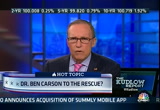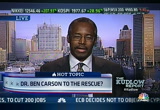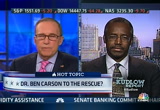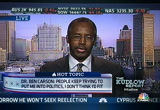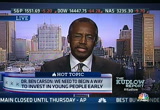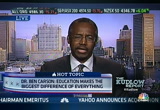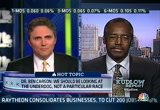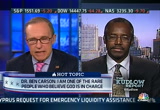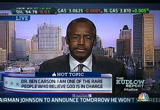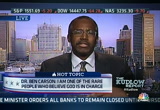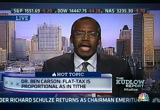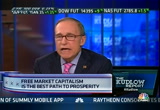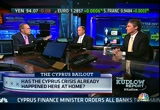tv The Kudlow Report CNBC March 25, 2013 7:00pm-8:00pm EDT
7:00 pm
only hertz gives you a carfirmation. hey, this is challenger. i'll be waiting for you in stall 5. it confirms your reservation and the location your car is in, the moment you land. it's just another way you'll be traveling at the speed of hertz. we don't let frequent heartburn come between us and what we love. so if you're one of them people who gets heartburn and then treats day after day... block the acid with prilosec otc and don't get heartburn in the first place! [ male announcer ] one pill each morning. 24 hours. zero heartburn.
7:02 pm
okay, all week we are profiling the real growth pharmas. i think pharma is a real interesting spot here. why? because the old ones yield great. the new ones are growing so fast and yet they're not that expensive versus even terrific companies like general mills, like kellogg. we are in the sweet spot looking for big stocks in the out years all week. stay tuned. there is always a bull market somewhere. i'm jim cramer. see you tomorrow! good evening, everyone. i'm larry kudlow. this is "the kudlow report." is famed neurosurgeon ben carson the black conservative who can save the gop. he retires in 100 days and will reveal his plans for future public service to us in just a few moments. and government payroll has dropped 37,000 since the recession bottom, but private jobs have rocked 5.2 million
7:03 pm
higher. as i've said many times, lower spending and limited government, including government jobs, is good for the private economy. that is the real engine of the economic prosperity. plus the supreme court this week will hear two important cases concerning same sex marriage. shouldn't the black robe masters leave the important social decisions to the states and their democratically elected legislatures or referenda? let the people decide. "the kudlow report" begins right now. first up, in recent weeks, he's become a conservative super hero icon. that following his triumphant speeches at the national prayer service and the cpac political conference. dr. ben carson has a message to roll back obama care, deal with the crushing national debt, and even a bib llically based call r
7:04 pm
a flat tax. that's what i love. is he the conservative that can save the gop? here is the aforementioned dr. ben carson. director of the pediatric division at john hopkins university. and with us this hour, cnbc contributors keith boykin. as always, dr. carson, great to see you. i'm reading one of many articles that you're retiring in 100 days. i wonder if you would share future plans, especially public service. >> i have a lot of things on my agenda. i've got ten international trips. a multitude of speaking engagements around this country. we're working very hard with the college fund. we're in all 50 states. we're putting in reading rooms all around the country. particular particularly targeting title one schools. >> as you know, senator carl
7:05 pm
levin is retiring. any interest in that open senate seat? >> people keep trying to put me into politics. i don't believe i fit the mold. i don't believe in political correctness, and i certainly don't believe with getting into bed with special interest groups. i just don't believe i'd fit. >> how about television? i've been reading about tv interest on your part. >> yes, i enjoy television. i think it's the way to reach the number of individuals. i think we're in a situation in our country right now where we need reasoned voices to help educate people. we have so many screaming people on both sides of the equation, and we're not making enough progress. >> dr. carson, i watched you, and we've been on the show before, for which i am grateful, and i've watched you on other shows and have been reading about you. it looks like you are a problem
7:06 pm
solver and looking for common ground. i get that. that's probably something lacking in this country. i just had a thought on the economy. if you take a look at unemployment rates, overall, 7.7% is not the worst thing in the world, but four years after the recovery, it should be lower. here's the ones that are killers, and i just want to get your thoughts on how to solve it. teenage employment in the usa, total teenage employment, 25%. overall black employment, 13.8%. and the worst one is teenage black employment, 43%. how in the world can we solve those problems, sir? >> it's going to take a concerted effort. first of all, we as a society need to recognize for every one of those young people we can keep from going on the path of despair, that's one more tax paying productive member of society who may discover a new energy source. so we need to think of ways to invest in them early.
7:07 pm
that's why we put in reading rooms and all these places to get them interested in reading because we have a 30% high school dropout rate in this country, and this is the information age, the age of technology. there is no way we can afford to lose 30% of our individuals. so we, those of us who are doing well, those of us in the business community need to recognize that those people become a drag on our society. so we really should be willing to invest some resources in helping them early on. it makes a big difference. >> so i know you've been very critical of obama care, and i want to talk about your biblically based flat tax, which i just love, but at the end of the day, are you really saying it's really education, education, education, right at the beginning of the child's life? >> on an individual basis, education makes the biggest difference of anything. certainly, in my case, and in many other cases that i know of, people should go to the website,
7:08 pm
horatio alger society and read the stories of those people, all of whom came from desperate situations and achieved at the highest levels. see what they put into it. those are the kinds of things we need to be putting in front of our young people. >> so, doctor, would you support government investment in early childhood education, increasing that? secondly, where do you stand on the issue of affirmative action? >> yes. early childhood education is good if it's done correctly. we don't want to do it in a way that gives people a message, poor little thing, we're going to take care of you. we want to do it in a way that's empowering and that tends to left people up. as far as affirmative action is concerned, i believe in something, and i've written about it, called compassionate action. we've always been a very generous and compassionate
7:09 pm
people who root for the underdog. the stripe of the underdog changes over the course of time. i think we should be looking at who the underdog is, not a particular class or race of people. so, for instance, if my son is applying to yale, and the son of a coal miner from west virginia is applying and his father got killed in the mines when he was 5 and he's been working all this time and he still has a very decent academic average, yes, i'd give him a leg up. >> dr. carson, you're talking about maybe you weren't interested in a senate race in michigan. as you know, there are people out there who have you waiting for your first trip to iowa or new hampshire to run for president. is your message for all those folks who are dying to get you into political office, stand down. it's not going to happen. i'm going to have a tv career. i'm going to be giving speeches. is that your message to them? >> my message is that i am not planning a career in politics. >> that sounds like a politician saying that, though.
7:10 pm
are you saying that definitively you're not going to run for office, or are you just saying you're not planning? >> that is certainly not my plan, i'm putting it that way. >> that's not a no. >> that's not exactly shermanesque. i don't want to harp on this. i was going to ask you about the flat tax, but that wasn't exactly shermanesque, what you justified said to keith boykin. >> again, my life has been one that has gone in many different ways that i didn't expect it to go, and i am one of those rare people who actually believe that god is in charge. so my job is to do the best that i can possibly do with what i have. and looking at that, it does not include politics for me right now. >> one of the things that really interested me, you'd like to replace medicare. you'd like to replace medicaid. i think you'd like to replace a lot of our welfare system, and you argue that the churches, the churches are the best ways to dispense help to those who truly
7:11 pm
need it. could you talk a little bit about how you see the role of the churches, and i would add synagogues and other things, to replace the welfare state. >> absolutely. one of the reasons that churches get the tax deductions that they get is because they're supposed to be out there taking care of people in the community. you have a situation with churches where they are right there with the people as opposed to a nebulous governmental agency that sends you a check in the mail to whom you feel really no responsibility to do anything. when you get a local involvement, yes, you're very grateful for the help, but also you have people to whom you're responsible, and that makes a huge difference in terms of how you react to that aid. >> can i ask you just one more. i love this. you've talked about a flat tax, and you've talked about a flat tax in biblical terms, and you
7:12 pm
say that there's no reason to punish the rich. in our remaining moments, could you just expand on that thought. >> sure. first of all, flat tax is proportional, as is tithe, which the bible advocates. you make $10 billion, you pay $1 billion. you make $10, you pay $1. the guy who put in $1 gets the same rights as the guy who put in 1 billion times more than he does. to me, that's extremely fair. you've got to get rid of the deductions. but the other thing that's fair about it is everybody has skin in the game. if everybody doesn't have skin in the game, then the government can be much less responsible. they can say, look, we're only raising taxes on these rich guys, this 1% or 2% or 5%. you other people don't have to worry. you want to talk about unfairness. that is the epitome of unfairness. we need to make all of our policies apply to everyone equally. >> you think the working poor should pay their taxes too,
7:13 pm
income action at thats, even if they can't afford to pay income taxes? they're paying payroll taxes already? >> of course they should pay their fair share of taxes. are they benefitting from things going on in our society? i think we do them a tremendous disservice when we say, there, there, little thing. we're going to take care of you. you can't do anything. >> it was ronald reagan and jack kemp who supported the idea of the earned income tax credit so people who were poor wouldn't have to pay their money to the tax man so they could use their wealth and use their resources to build their income and become part of the middle class. are you saying you don't support that concept? >> i think you make the system much more complex when you start exempting this group and that group. the fact of the matter is, if we have a fair taxation system, the economy is going to explode. you're going to have plenty of money. if you want to do something for those people in terms of money that you want to give to them or some program you want to make available to them, i'm all for
7:14 pm
that. but once we start tinkering with the system and saying, let's change it here and let's change it here and let's make an exception for this group or that group, then we get away from fairness. >> we're going to leave it there. many thanks, dr. ben scarson, a always, sir, appreciate your time. all best of luck on your pending retirement. coming up on kudlow, new charges of a chemical weapons attack in syria. has president obama's red line been crossed, and is it time for a u.s. military intervention? we're going to ask house intelligence chairman mike rodgers up next? plus government payrolls are falling, but private jobs are rocking higher. sequester spending cuts are pro growth for the private sector, which is the real engine of prosperity, as we know. may not forget free market capitali capitalism. it's the private sector that counts. we can shed some of those government jobs. hey! did you know that honey nut cheerios
7:15 pm
has oats that can help lower cholesterol? and it tastes good? sure does! wow. it's the honey, it makes it taste so... well, would you look at the time... what's the rush? be happy. be healthy. [ construction sounds ] ♪ [ watch ticking ] [ engine revs ] come in. ♪ got the coffee. that was fast. we're outta here. ♪ [ engine revs ] ♪ [ engine revs ] for over 75 years people ...with geico... ohhh...sorry!. director's voice: here we go. from the top. and action for over 75 years people have saved money with gecko so....
7:16 pm
director's voice: cut it! ...what...what did i say? gecko? i said gecko? aw... for over 75 year...(laughs. but still trying to keep it contained) director's voice: keep it together. i'm good. i'm good. for over 75...(uncontrollable lahtuger). what are you doing there? stop making me laugh. vo: geico. saving people money for over seventy-five years. gecko: don't look at me. don't look at me.
7:17 pm
7:18 pm
administration. but if these latest accusations prove true, is now the time for u.s. boots on the ground? here now to tell us is house intelligence committee chair mike rogers. he's a republican from michigan. keith and jimmy are still with us. chairman rogers, thank you very much, sir. is there truly conclusive evidence that one side or the other has really used chemical weapons. >> larry, when i look at all of the evidence, all of the intelligence, and the body of reporting over the last two years, i come to the conclusion with a high probability that the assad regime has used, at least in limited quantities, chemical weapons. they've also put them in a position to be used, and i believe, and the intelligence community, i think, believes that they have serious intent to use them under the right circumstances. so the red line that the president talked about, august 20th, was, if they move chemical weapons or use chemical weapons, that changes the calculus.
7:19 pm
we have a humanitarian crisis growing that's impacting all of our allies in the region. you have chemical weapons and conventional weapons that, if in the fall of an assad regime without some order subsequent to that will be a disaster for the middle east and southern europe. so we have a growing crisis we need to do something about. >> so just to sum up, your view is the intelligence services and other related agencies, they have made this determination that chemical weapons are being used. because the news organizations, including nbc use, cannot pinpoint anything specific. you're saying these intelligence agencies have created some kind of combined structural decision on this? >> let me define. i'm an fbi agent, so i look at all the evidence. i look at all the evidence and all the body of reporting over the last two years and believe that there is a high probability that at some point the assad regime has used at least a limited quantity of chemical
7:20 pm
weapons. they have also put them in a position for use. but think about where we are, larry, they fired some 100 scud missiles at civilians. you have huge refugee problems bleeding into jordan. you have al qaeda, some thousands now, on the ground fighting in syria. that's a dangerous thing for all of us, given the quantity of chemical weapons and conventional weapons. you have refugee problems on the turkish border. the al qaeda/hezbollah action in syria is very, very concerning to recognize terrorist organizations. this is real trouble real quick. if you want a diplomatic solution -- and i still think there's one possible -- you can't do it if you have no credibility with the opposition and no credibility with our arab league partners. and right now we find ourselves in that spot. so you have to build that credibility. this is not boots on the ground, by the way. i want to make that very clear, we don't need 101st airborne
7:21 pm
division showing up. >> when you said boots on the groupd, am i wrong? i thought you said over the weekend that you joined in with senator mccain and senator levin, and you want some kind of special forces to go in with syria to identify, locate, or somehow get the chemical weapons back. hence i call that boots on the ground. >> i think it's really important to be clear about what we're trying to do here. we have small groups, special capability forces that we can add to the mix here that does t doesn't -- is not at the front end of the fighting, but brings special capabilities. through intelligence, training, equipping, and rallying our arab league partners in the region so that they're taking the front end of this, what is going to be just a huge catastrophe if assad falls with all of this al qaeda and hezbollah and everybody working to try to get those weapons. we have a very special capability that we can provide in this that brings credibility
7:22 pm
to the united states, and by the way, that's what will give us the credibility to negotiate a diplomatic settlement here. that's the whole point of this. so you have a bipartisan call from both the senate and the house saying, mr. president, now is the time, you don't have to do big boots. this isn't big military, but this is about the center of u.s. influence and using small groups, special capabilities to bring this to the right conclusion. >> small boots, special capabilities. president obama has called this a game changer. if chemical weapons are involved, he calls this a game changer. but he said, mr. chairman, that he would bring in the international community, which doesn't sound like aggressive american action. in your judgment, is the president behind the eight ball on this story? >> you have 70,000 dead. the situation there has deteriorated badly. listen, i think we are behind the eight ball. when the opposition initially tells the secretary of state of the united states we're not interested in a meeting, we've got to a huge problem.
7:23 pm
they're not buying into this political coalition that's being plopped on folks that are really fighting on the ground. thats a problem. if you really believe in a diplomatic solution, you have to have credibility. we can stop the scud missiles from striking civilians. we ought to do that. we can render their ability to deliver chemical weapons useless. we ought to do that. and so we have these special capabilities that can project power without being at the front end of this fight. and that's what people are talking about. >> you want to weigh in? >> i don't understand what you're talking about. you're saying we have special capabilities that can project power without putting boots on the ground. what exactly are you saying we should do? if you were president, what specifically would you do that the president isn't doing now? >> i've laid this out in an op ed recently "the washington post." we're in a bipartisan agreement in the house and the senate. you want a no-fly zone, safe
7:24 pm
zone with our arab allies, by the way. this isn't just by the united states, including the turks. so you push down in the north. you have a safe zone where you can bring people to train so they get u.s. training quality. we can equip them to go down and be force leaders and leverage their influence in these groups so these groups don't get taken over by al qaeda and hezbollah and other extremist fighters who we know are proliferating the region now. and what you do is you bring down your capability to shoot down missiles incoming and aircraft that's incoming to destroy civilians populations in these training centers. so that's how do you this in a way that kind of moves this ball along or we get a safer -- and it's in our national security interests to make sure these weapons don't proliferate around the region. >> thank you, sir. many thanks, house chairman mike rogers. we appreciate the update. up next on kudlow, it's no shock that public sector cuts
7:25 pm
7:26 pm
to make their money do more. (ann) to help me plan my next move, i take scottrade's free, in-branch seminars... plus, their live webinars. i use daily market commentary to improve my strategy. and my local scottrade office guides my learning every step of the way. because they know i don't trade like everybody. i trade like me. i'm with scottrade. (announcer) scottrade... ranked "highest in customer loyalty for brokerage and investment companies." a talking car. but i'll tell you what impresses me. a talking train.
7:27 pm
this ge locomotive can tell you exactly where it is, what it's carrying, while using less fuel. delivering whatever the world needs, when it needs it. ♪ after all, what's the point of talking if you don't have something important to say? ♪ from the united states postal service a small jam maker can ship like a big business. just go online to pay, print and have your packages picked up for free. we'll do the rest. ♪ i'm just going to call this more good economic news. since the recession bottom in june 2009, this is how team obama measures it, federal, state, and local jobs have fallen 740,000. and i'm sorry for that. however, private sector jobs
7:28 pm
have increased 5.2 million over the exact same period, way more, making up for the slack. so once again, i argue spending cuts are pro growth. smaller government is good for the private economy. that is the true engine of economic growth. let's talk to keith and jimmy. i'm sorry, keith, the private sector jobs have outspread the public sector jobs by a huge ratio. >> are you saying there's growth now? that's good. >> i have continued to say that. >> "the wall street journal" said it would be 7.1% if it weren't for the government job cuts. government job cuts means there are fewer people who can pay money and can fail to contribute to the economy. that's a good thing, i think. >> we don't want just jobs. government can create a bunch of jobs and have people walking around parks picking up wrappers. what you want is value added economically sustainable jobs that are aren't based on
7:29 pm
taxpayer money, and we're creating real jobs. this is really the important part. this is the most important we'll say all night. what we're doing is removing human capital from an unproductive area, government, to a productive area, the private sector. >> tell that to schools that don't have teachers. tell that to the communities that don't have firefighters and police officers. tell that to the air traffic controllers who won't be able to make sure the air space is clear. >> under your philosophy, government would never shrink because the loss of one job, one public sector job is one job too many. >> this is the wrong time to make those government job cuts in the middle of a weak recover. you're talking about 740,000 jobs cut. and you're talking about a sequester that will cut another 100,000 jobs. >> but you're talking about 100,000 fprivate sector jobs a month. that way outstretches it. >> would you rather have an
7:30 pm
unemployment rate that's 7.1% or 7.9%? >> i don't think that's the way it's going to work. when this is all setd and done, if team obama would quit raising taxes, they'll get their private sector jobs and grow this economy. they should get the unemployment down to 5% or 6% if they do it right. i don't know they will, but it's a potential market. >> isn't that really the problem here? these are democratic voters you're worried about. >> final word action with he need to focus on job creation. >> we need to focus on real jobs. >> people who are teachers and firefighters are real jobs. they're real people in real jobs. they count too. >> we have had so much increase in money spent on education with no results whatsoever, keith. >> i think we need more teachers. you have no idea how many teachers we have. >> bureaucrats, administrators. >> teachers -- the white house has the website right now that shows the effect of the
7:31 pm
sequester. we have teachers and teachers aides that are being cut. >> which teachers are we laying off? how do we determine that? are we laying off bad teachers or just the last teacher hired? >> it's indiscriminate. it's a sequester. >> exactly. >> that's not a good thing. >> i think this is subject for another debate. anyway, up next on "the kudlow report," the supreme court faces two very important same-sex marriage cases this week. the important question for these judges are whether these social decisions aren't best settled democratically in the states rather than mandated by nine justices. ♪ [ male announcer ] how could a luminous protein in jellyfish, impact life expectancy in the u.s., real estate in hong kong, and the optics industry in germany?
7:32 pm
at t. rowe price, we understand the connections of a complex, global economy. it's just one reason over 75% of our mutual funds beat their 10-year lipper average. t. rowe price. invest with confidence. request a prospectus or summary prospectus with investment information, risks, fees and expenses to read and consider carefully before investing.
7:34 pm
welcome back to "the kudlow report." the supreme court will hear oral arguments in a pair of cases that could have enormous social implications for the nation, mainly whether same-sex couples should have the right to marry. rather than nine black robed justices, why not use democratically elected state by state institutions, legislatures, referenda, for these evolving issues. we have former dnc chair and cnbc contributor howard dean,
7:35 pm
and kelly ann conway, president and ceo of the polling company. keith boykin and jim pathokoupas are still with us. governor dean, why not allow this to be done state by state democratically? why should these nine people make a decision for the entire country? >> i can think of most cases where it hasn't been done unanimously. if you'd done this with brown versus the board of education, you'd still have segregated schools in alabama. you can't put that on a ballot. these judges need to decide whether it's a constitutional right, not state by state. >> do you think this is a constitutional right? do you think it's a 14th amendment issue, or do you think this is about an individual? is this an issue about individual rights and expanding them under the constitution, or is this an important social and cultural issue which is evolving, which is changing?
7:36 pm
>> marriage itself -- it's a little bit of both, and i'll tell you why. marriage itself has always been in the province of the states. in all kinds of relationships like that -- marriage, divorce, child custody, for example -- and usually under the states' police powers, by and large. there's a reason why this worked. when this debate started, when prop 8 was put on the ballot in california, the gay marriage rights lobby was losing, the traditional marriage lobby were losing state after state in many of the constitutions by the simple phrase of marriage exists between one man and one woman only in the state of blank, and they were winning. now the gay rights lobby is winning in these states, four just last fall, and they're trying to do now what roe versus wade did, which is basically the states started passing abortion laws, and the supreme court swooped in and said it's all or nothing, and that debate rages 40 years later. i don't know the supreme court will find a constitutional right to marry for anyone because this is something that's traditionally left to the states. public opinion aside, this is
7:37 pm
not a popularity contest. this is not do we all know and love somebody who's gay? because we all do. >> the supreme court has already recognized there is a fundamental right to marry, it's repeatedly held that. and it held that most famously in the 1967 case, loving versus virginia, which is a case that said the states' decision about making interracial marriage illegal was not constitutional. so having states make these decisions on a fundamental right like marriage is not acceptable under the constitution. >> i would argue it's a little bit more complicated. the problem is this. people who are allowed to get married -- and this is actually the case that's going to be argued tomorrow. people who are allowed to get married, which is now nine states plus d.c., includes same-sex couples, are denied certain rights at the federal levels, a lot of rights, like 1,000 rights, mostly to do with insurance and things like that.
7:38 pm
gl this is really the defense of marriage act you're talking about. >> right. so the problem is -- the two cases are already related. states have already decided people can get married. the question is what is the federal government going to do about that? are you going to have separate rights for different states? i don't think that's really allowed. if you look at the disabilities community, race, gender -- there are not many cases where the states have said, go ahead, some states can discriminate, and some can't. >> is it possible the court -- and i raise this point. you raised roe v. wade, and i think that's a good point. we didn't have to do it that way, but we did. state by state, american institutions, i thought that was the democratic way. on the other hand, the defense of marriage act looks more vulnerable, for the reason that governor dean mentions, spousal benefits and all that. the but the court could rule differently. no defense of marriage act, and then send the same-sex marriage
7:39 pm
back, essentially california's prop 8, send those cases back to the states, either the legislatures or referenda, which is the democratic way to do it. >> it would basically be a propositional issue in the california case. hollingsworth, you look standing, in the people who wanted to up-end the court of appeals decision, which overturned the will of the people in passing proposition 8, they would say, you know what, you didn't have standing to intervene. >> the state of california has already chosen not to appeal the case. this is not the state appealing it. the point here about dome is an important one. after hawaii passed gay marriage in 1993, president clinton decided to make sure that each state -- again, larry, states' rights -- that washington intervene and say states have the right to not recognize marriages if the people in that state don't believe in that. this has always been a fact. the other thing, "the wall street journal" made a very important point in their very strong editorial today, saying
7:40 pm
the supreme court should really hold against these two cases. they said, how can you tell millions of americans that they're deeply held moral beliefs are bigotry. >> do we want a legal, judicial decision here, or do you want a political decision? >> right. zb we just got a political decision in the obama health care case, and roe v. wade was also a political decision, which they wanted the right, it was an incorrect decision. >> the right to marry is fundamental. the constitution of the supreme court has repeatedly recognized that. the idea that you can't compare that to loving versus virginia, kelly ann, is wrong because the issue is about marriage. the issue is about marriage, and the court says it's a fundamental right. it doesn't matter whether you
7:41 pm
apply it to two people of the same half. >> what's really happening here -- >> one more comment, governor dean. the full faith and credit clause of the constitution prohibits states from noting recognizing documents from another state. >> is this a crisis issue we need the supreme court to intervene right now? is it a dynamic issue? the governor is comparing it to brown versus the board of education and the 1960s. that was a long emergency that demanded immediate action. >> tell that to the millions of people that want to get married and can't. >> governor, what's wrong? let me ask you this. what's wrong with state by state jurisdictions? we have a long history of that in the united states? is again, i go back to the simple argument. states are there. we still respect them. and they have democratic institutions to deal with this question. in new york, for example, in new york, the same-sex marriage, gay marriage won. and people were quite surprised, but they won, and they won through the legislature.
7:42 pm
so they were properly elected. >> i can explain this if you give me just a second. this is about equal rights under the law, and i think for a long time people thought that homosexuality was an immoral lifestyle, and there are certain people who still do. the overwhelming evidence is that people don't choose to be gay any more than they choose to be black or latino or whatever they may be. to take a certain segment of the population that happens to be born gay and deny them the same rights that everybody else is able to have is not right. that is not something that can be subject to the whims of the ballot. there has been bigotry and prejudice for a long time. i'm not accusing everybody who's against gay marriage as bigotry. it's true that some religions treat that, which may or may not be bigotry. >> this case is the fact that the equal protection clause will create a new class. >> that's the state of this country, and individuals have a right to be treated the same way as everybody else. and that is at the core of this debate. >> a tricky question.
7:43 pm
but it violates the equal protection clause. you have to create a new class of people. >> do we need more individual rights, or is this a question about marriage? those are two different -- they may be related, but they're two different things. >> that's a very important question. the question before the supreme court, regardless of who's changing their mind on it or whose loved one is gay. who among us doesn't have a loved one who's gay. that's a given. the question is whether the 14th amendment clause should create a new class of people? the supreme court hasn't done that in 30 years. >> it's about whether the equal protection clause protects people who have the right to marry. >> that's the same thing. >> no, you're framing it as a new class of people. >> it's a straight up civil rights case. >> we will see. many thanks. howard dean, we appreciate it. kelly ann conway, as always. up next, financial markets frowned on today's last minute cyprus bank bailout or deposit
7:44 pm
7:47 pm
cyprus clinched a last-minute deal to resolve the country's financial crisis. cnbc's international correspondent michelle caruso-cabrera joins us from cyprus with the very latest. good evening, michelle. >> reporter: cyprus finally secured a bailout agreement, but it's a tough one. in exchange for the money, they agreed to downsize their two biggest banks, which means thousands of job losses and a big hit to the economy. in terms of bailouts, big firsts here. bond holders and uninsured depositors will face losses. that hasn't happened before. now investors are on notice. they're going to have to be a lot more careful. the european taxpayer isn't going to protect you like they have before. larry, back to you. >> many thanks. cnbc's michelle caruso-cabrera. question is can the cyprus crisis actually happen here in the usa? here now is jonathan trogman,
7:48 pm
managing director at penn capital and sunday business columnist for the new york post, and author of the piece on cypr cyprus, "think it can't happen here? it already has." briefly, jonathan, why do you say it's already happen here? we didn't have depositor bail-ins. i wish we did. it's closer to bankruptcy. why do you think it's happening here? >> for the last four years, the typical average american saver is earning far less than they would have in a non-qe and nonzero interest rate policy environment. the federal reserve has drilled rates down to zero because they cannot get gdp to grow because of tight regulation on the middle class. with zero percent rates, the saver earns next to noing, and the typical american family has no access to the american credit markets. >> i think we have a table we want to put up.
7:49 pm
you're basically saying that u.s. deposits are a little different from the cyprus story. u.s. savers have been badly damaged by the federal reserve policy. >> it's basically like a tax. if interest rates were at 2%, u.s. savers would earn 2% a year. last four years, they would have compounded out at 9%. instead, their earnings are basically zero, and they're underwriting the profits of the banks. >> jimmy, your response? >> you look globally at long-term interest rates, where are they going globally? down, down, down, even where banks aren't doing quantitative easing. those low rates reflect a weak economy. people aren't one thing. sure, they're savers, but they're also equity investors, who have done very nicely of late. if we follow your advice and start jacking up rights, you might put us back into a recession. great, i'm a saver, but now we have a recession.
7:50 pm
that's not a tradeoff i want. >> i sort of understand that. i'm not suggesting jacking up rates. what i'm suggesting is, if you release some of the parts of dodd frank that are too tight on the consumer and the typical american borrower and person looking for a mortgage, you wouldn't need the rates so low. the typical family making 60,000, 70,000, $80,000 could go out and refinance. they can't refinance right now. >> but the rates have helped, as jimmy mentioned. >> the zero percent pulls them up, but you would never have to go that low or force them into stocks if they don't want to be. >> don't you think that the high end depositors in cyprus should have been bailed in, that they, in fact, are creditors of the bank in the old 19th century sense. they're not guaranteed. if you have this crisis with the bank of cyprus and the popular
7:51 pm
bank, they should pay it? >> sluabsolutely. they should be doing the due diligence to figure out if they're safe. if not, they're all going to be completely backed up, and we're going to back up the debt too. didn't just nationalize all those banks. that's effectively what you have are nationalide banks unless those depositors have a real risk of loss that forces them -- you could make the case to get deposit insurance in general to force people to be much morass tut about where they're putting the money. >> this is a free market. this is how it's done in the united states, and banks failed. but you're just saying the federal reserve has improve risched savers. that's what you're saying. >> it's essentially a tax. they get no benefit from qe and zero rates. they're footing the bill while the banks are printing money. ibm, disney, they can all go out and replenish their balance sheets. >> it's like they're all moving in lock step. is it just the fed?
7:52 pm
>> because we have dodd-frank. >> the reason we have low rates is a very weak economy. is it the fed or a weak economy? >> we have 5% growth. we'd have a lot stronger long term and medium rates. up next, markets edged a bit lower today, but a wee bit of a correction leaves me with plenty of optimism at our economy, which i actually think is rising. "the kudlow report" is coming right back optimistically. my goal was to take an idea and make it happen. i'm janet long and i formed my toffee company through legalzoom. i never really thought i would make money doing what i love. [ robert ] we created legalzoom to help people start their business and launch their dreams. go to legalzoom.com today and make your business dream a reality. at legalzoom.com we put the law on your side.
7:53 pm
7:55 pm
let's do a little bit of stock market work. stocks finished lower. cyprus worries continue to spook investors? maybe. or maybe today is an example of buy the rumor, sell the news. here is rebecca patterson who definitely knows. she's chief investment officer of trust. stephanie link, also of the street and portfolio manager of jim cramer's charitable trust. do investors care about cyprus? >> they shouldn't. >> i'm sorry. that sounds so callous. >> i'm inclipd to agree with you, but because these uninsured investors are getting haircuts, there is an issue about potential bank runs on the same corporate insured depositors in italy and spain, which could upset the card in the eurozone.
7:56 pm
>> cyprus has $22 billion gdp, which is small, and we could see contagi contagion. i think the fact we got it done is good news, about you it doesn't solve the problems happening in europe. to me, that's a little more concerning. the european economy has gone from stabilization to deceleration. look at the pmi numbers last week, the confidence numbers, the gdp numbers across the board. that is a little bit more worrisome. that means you don't want to invest there at this point. i know the valuations look interesting, but i think the valuations in the u.s. and elsewhere are more attractive. >> with growth. that's basically what bernanke said today. bernanke basically said today, my quantitative easing is going to make world growth better, including europe, including japan. we're not beggar thy neighbor, we're helping thy neighbors. do you agree with bernanke? >> yes, i do, actually. i know you had a discussion on the low interest rates hurting american savers, and i think
7:57 pm
that's true. that is only part of what the fed has done. there are unintended consequences, that's one, but i think there are other positives, bringing down mortgage payments something like 45% over the last six years makes americans wealthier. to the point on europe and the slow growth, the ecb has a great opportunity now. they have a meeting on april 4th. inflation is running well below their target. >> they're too tight. >> they should ease in april, and if they did that, i think that might be a reason people might look at the valuations in european stocks a little bit differently. if draghi is obstinate and says we don't need to ease, we could see a problem venlt >> deflation is a problem. it's a problem in europe. it's a lingering problem in parts of the usa. it's definitely a problem in japan. >> it's not a problem in china. it's not a problem in brazil. >> it's not a problem in the property markets in china.
7:58 pm
elsewhere in china, you look at commodity markets, they are deflating now. >> you look at food, those prices have been going up substantially. that's why people have cooled on china. beginning of the year, everybody loved china. we were included in that. we've taken profits along the way. the euphoria has been so great for this region, but i think this new leadership is going to take time in terms of new policy. maybe they might have their hands -- maybe kind of tied behind their back because of the inflation issue. there are other places to he have had invest. the u.s., we talked about, housing, even manufacturing, consumer. you look at japan, they're about to go and reflat. that's vi interesting. >> april 4th, we get the bank of japan meeting and the ecb. that could be interesting, where you see japan more aggressive, and japan one of the few stocks outperforming the u.s. and you get europe being stubborn, refusing to ease. >> i come back. this is such a weak world
7:59 pm
recovery. maybe china, maybe not. elsewhere, the big guys, usa weak. europe weak. japan weak. i just don't see how you can focus on inflation right now. i don't think that's remotely the problem. i really don't. i'd like to see lower tax rates and supply side reforms, but i don't see where you get the inflation scare. i just don't see it. >> not near term. >> rebecca patterson, stephanie link, i hope you'll come back and sit with me for the whole hour on the show. that's my invitation. now i'm doing my own booking. i'm larry kudlow. we'll be back tomorrow evening.
139 Views
IN COLLECTIONS
CNBC Television Archive
Television Archive  Television Archive News Search Service
Television Archive News Search Service 
Uploaded by TV Archive on

 Live Music Archive
Live Music Archive Librivox Free Audio
Librivox Free Audio Metropolitan Museum
Metropolitan Museum Cleveland Museum of Art
Cleveland Museum of Art Internet Arcade
Internet Arcade Console Living Room
Console Living Room Books to Borrow
Books to Borrow Open Library
Open Library TV News
TV News Understanding 9/11
Understanding 9/11



